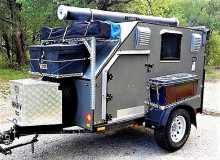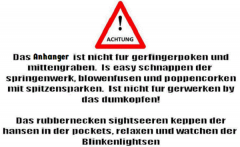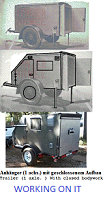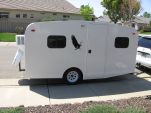14/2ga(w/ground) indoor Romex; ok under trailer?
12 posts
• Page 1 of 1
14/2ga(w/ground) indoor Romex; ok under trailer?
While cleaning out my garage to make room for the completion/storage of my TTT, I found a box of (free, unknown origin) Romex indoor 14/2ga . Though I'm planning a mostly 12v electrical installation, I'm going to wire in a 2k watt (or 3500w, if I can come in at under 1000 lbs) generator, and galley wall -mounted A/C unit (again if, 5k btu's or up to 10k-I have a spare 10k-if I use the 3500w gen). My question is: can the indoor Romex be run under the trailer, without conduit to save cost and weight, and is it rated to carry up to 15 amps at 120vac ? I'll also have a 400w inverter for smaller 120vac draws, using standard extension cords. I plan to use stranded automotive wire for the 12vdc runs. The longest individual wire length will be 9 ft, of any voltage.
2013 HHRv "squareback/squaredrop", rugged, 4x8 TTT, 2225 lbs


- *3500 lb Dexter EZ-Lube braked axle, 3000 lb.springs, active-progressive bumpstop suspension
- *27 x 8.5-14LT AT tires (x 3) *Weight Distribution system for single-beam tongue
- *100% LED's & GFCI outlets, 3x fans, AM/FM/CD/Aux. *A/C & heat, Optima AGM, inverter & charger(s)
- *extended-run, on-board, 2500w generator *Coleman dual-fuel stove & lantern, Ikea grill, vintage skillet
- *zinc/stainless front & side racks *98"L x 6" diameter rod & reel carrier tube on roof
-

working on it - 2000 Club

- Posts: 2189
- Images: 457
- Joined: Tue Oct 04, 2011 9:05 pm
- Location: DFW Texas
Re: 14/2ga(w/ground) indoor Romex; ok under trailer?
I would not recommend it.
There is not very much protection from physical damage to the cable.
There is not very much protection from physical damage to the cable.
My TTT Garageable Standy Build Journal: viewtopic.php?f=50&t=40591
-

terryjones1 - Gold Donating Member
- Posts: 266
- Images: 1
- Joined: Wed Aug 25, 2010 2:09 pm
- Location: Lincoln, Ca

